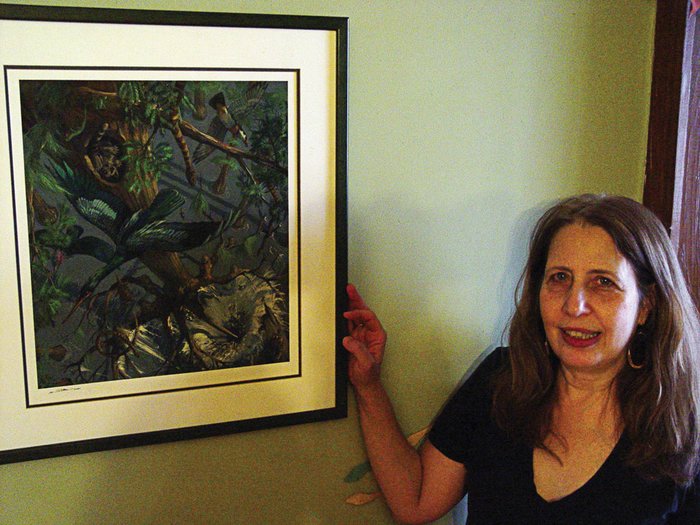Weehawken resident and author Gabrielle Jonas was returning home on a bus from her sister’s house in Philly after celebrating a seder. As they sped down the highway, a 5-year-old child behind her on the bus looked out the window and said, “I hate trees because they don’t have feathers.”
Over a decade later, Jonas took a remark only a kid would make and turned it into an environmental children’s chapter book, “When the Tree Flew.” After 12 years of fine-tuning and a brief attempt to turn the story into a screenplay, she self-published the book through Barnes and Noble in downloadable eBook form this past December.
“This isn’t about cute, fuzzy animals.” –Gabrielle Jonas
____________
“This isn’t about cute, fuzzy animals,” Jonas said. “Some animal characters are cruel, and some are even eaten.” In this way, Jonas lends a realism to the lessons and characters in the story that transcends the otherwise fantastical tale of talking creatures and flying trees.
Adult lessons, childlike narrative
“When the Tree Flew” is currently classified as a book suitable for children ages 9 to 12. However, as is a seeming trend in children’s literature these days, the themes are decidedly adult, with generational references that far predate the story’s targeted demographic.
As for why Jonas decided to make it a children’s book, she said, “Well, if you’re writing about a flying tree, you’re presented with rather limited options.”
Beulah, a name with both Hebrew and southern roots which means “promised land,” is a bald cypress who has lived in the same swamp in the South for decades. She has a seemingly insurmountable dream: she wishes to fly. She meets with the disbelief and jeers of the animals but eventually, after consulting several animal doctors, she achieves her dream.
“My main character is quite flawed,” Jonas said, “which ties in to some of the narrative’s larger themes;” one of which is the importance of open mindedness to going after what you want in life.
She also says there is “a strong coming-of-age theme” with two of the characters. The same theme applies to larger environmental issues in the book as well. Jonas’s flora and fauna society realize the importance of maturity and personal growth in order to preserve the world they live in.
Where reality and fiction meet
Jonas’s father Hans was a philosopher whose message toward the end of his life inspired her work. “During the last lecture he gave before he died,” she explained, “he emphasized our responsibility toward the earth and its living things, how vulnerable our environment is, and how racism plays into it.”
Eli, the book’s eldest bald cypress, is modeled after him.
A former journalist and therefore no stranger to the importance of accuracy and research, Jonas studied every animal, plant, and ecosystem extensively and then fit her message to what she found.
Her next creative step depends on whether “When the Tree Flew” is a success. If it is, she may write a part two. If it isn’t, she may write a crime story in the vein of Ellery Queen (having run several a police beat in her journalism days).
“I already have a title in mind for one of them,” she said. “ ‘Death by Dangling Participle.’ ”
Besides writing, Jonas also attends Weehawken town meetings, following what happens within her community.
Jonas’s book may be found by searching “When the Tree Flew” at www.barnesandnoble.com.
Gennarose Pope may be reached at gpope@hudsonreporter.com
